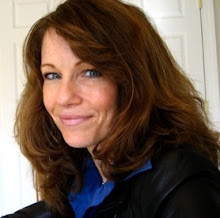
I’ve learned a lot about writing from reading about screenwriting. So, when someone recently mentioned Alfred Hitchcock as the master of suspense, I couldn’t resist looking into some of his techniques. I thought I’d share some summarized tid-bits of what I found that could apply to novel writing.
Everything should be done for the audience. Each scene should affect them, should engage them, and pull them deeper into the story. The characters should tease and make the audience desperately want more.
This might seem obvious, but I, for one, cannot be reminded of this enough.
Emotion is the goal of each scene. Be aware of the emotions coming from the characters. As an assist, think about what musical score would capture or elicit the emotions for each scene.
I love this idea of considering the music that would accompany each scene.
Help the audience to feel as if they are a part of the story or one of the characters in the story. In a suspense film, the viewer should be considered to be a part of the film. Let the audience make discoveries.
A character should be the exact opposite of what the audience expects him to be. Dumb blondes should be smart and rationale. A cute kitten might be a rabid killer.
Ah, misdirection. . . . intriguing.
Alfred Hitchcock once said: “People don’t always express their inner thoughts to one another… conversation may be quite trivial, but often the eyes will reveal what a person thinks or needs. The focus of the image should never be on what is said, but rather on what the character is doing...”
Wow, is this great advice or what?
What do you think about these snippets of wisdom from the great film-maker?






Who knew? I've never been a fan of his movies, but something tells me I ought to pay closer attention to Mr. Hitchcock now. ^_^ All of his advice is very good - but I especially got a kick out of the point about misdirection. "A cute kitten might be a rabid killer." LOL! But it's true - a little mind-game is always cool...
ReplyDeleteI agree, Sabrina. I was surprised at all the good advice I was able to dig up, compliments of Mr. A. Hitchcock.
ReplyDeleteI'm a Hitchcock fan and, after reading this, now I see why I became so involved in his films. And these tips can be applied to writing.
ReplyDeleteHave a great weekend.
I liked that point about the misdirection, too, Sabrina. Definitely something I'll be keeping in mind as I write.
ReplyDeleteGlad you liked them, Medeia. I've seen lots of HItchcock films, too, but I never thought about the techniques behind his work before I started looking for them.
Happy weekend to you, too (although it's almost over as I type this).
Emotion is a big part of writing. I need to feel what characters are feeling, which is sometimes exhausting.
ReplyDeleteReally like Hitchcock's take on the eyes and people's actions.
I will most definitely take advice from Alfred Hitchcock! Thanks!
ReplyDeleteSo true, J.L.! It is exhausting to feel what the characters feel and bring it to print somehow, but also rewarding, right? : )
ReplyDeleteYou're most welcome, Kelly! Thanks for stopping by.
This rings so true to writing. I especially love the part about bringing the audience into a movie...or a book. There are no greater books than the ones I mourn for when I'm finished because they became a part of me.
ReplyDeleteAnd just to let you know, I gave you a couple of awards if you wanted to stop by and check them out:)
Thanks, Deana! It's true: It's sad when some books (the best books) come to an end--usually the stories that have brought me in, as Hitchcock noted.
ReplyDeleteI'll be over to check out those awards. Thank you!! : )